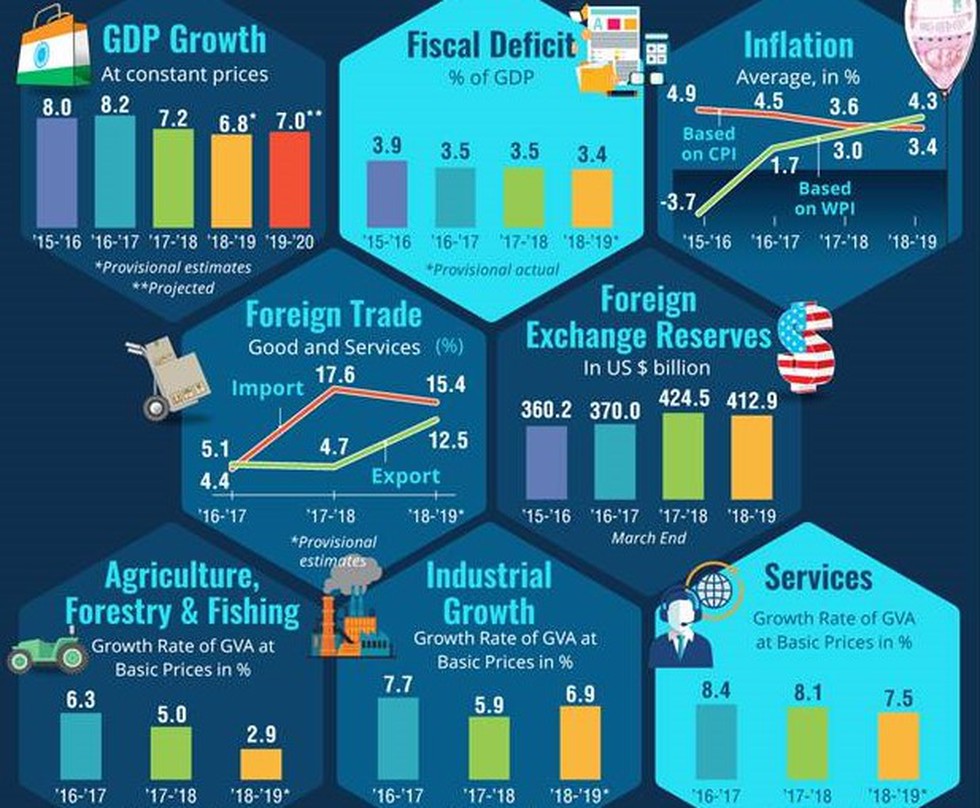Key Highlights of Economic Survey 2018-19:
- Sustained real GDP growth rate of 8% needed for a $5 trillion economy by 2024-25.
- Survey departs from traditional Anglo-Saxon thinking by viewing the economy as being either in a virtuous or a vicious cycle, and thus never in equilibrium.
- Using insights from behavioral economics to create an aspirational agenda for social change:
- From ‘Beti Baco Beti Padhao’ to ‘BADLAV’ (Beti Aapki Dhan Lakshmi Aur Vijay Lakshmi).
- From ‘Swachh Bharat’ to ‘Sundar Bharat’.
- From ‘Give it up” for the LPG subsidy to ‘Think about the Subsidy’.
- From ‘Tax evasion’ to ‘Tax compliance’.
- Dwarfs (firms with less than 100 workers) despite being more than 10 years old, account for more than 50% of all organized firms in manufacturing by number.
- As data of societal interest is generated by the people, data can be created as a public good within the legal framework of data privacy.
- 1% of the households have access to toilets. 96.5% of those with access to toilets are using them in rural India. 100% Individual Households Latrine (IHHL) Coverage in 30 states and UTs.
- India now stands at 4th in wind power, 5th in solar power and 5th in renewable power installed capacity.
State of the Economy in 2018-19: A Macro View
- India still the fastest growing major economy in 2018-19.
- Growth of GDP moderated to 6.8 % in 2018-19 from 7.2 % in 2017-18.
- Inflation contained at 3.4 % in 2018-19.
- Non-Performing Assets as %age of Gross Advances reduced to 10.1 % at end December 2018 from 11.5 % at end March 2018.
- Current account deficit manageable at 2.1 % of GDP.
- Fiscal deficit of Central Government declined from 3.5 % of GDP in 2017-18 to 3.4 % in 2018-19.
- India’s SDG Index Score ranges between 42 and 69 for States and between 57 and 68 for UTs:
- Kerala and Himachal Pradesh are the front runners with a score of 69 amongst states.
- Chandigarh and Puducherry are the front runners with a score of 68 and 65 respectively among the UTs.
- India’s External Debt was US$ 521.1 billion at end-December 2018, 1.6 % lower than its level at end-March 2018.
